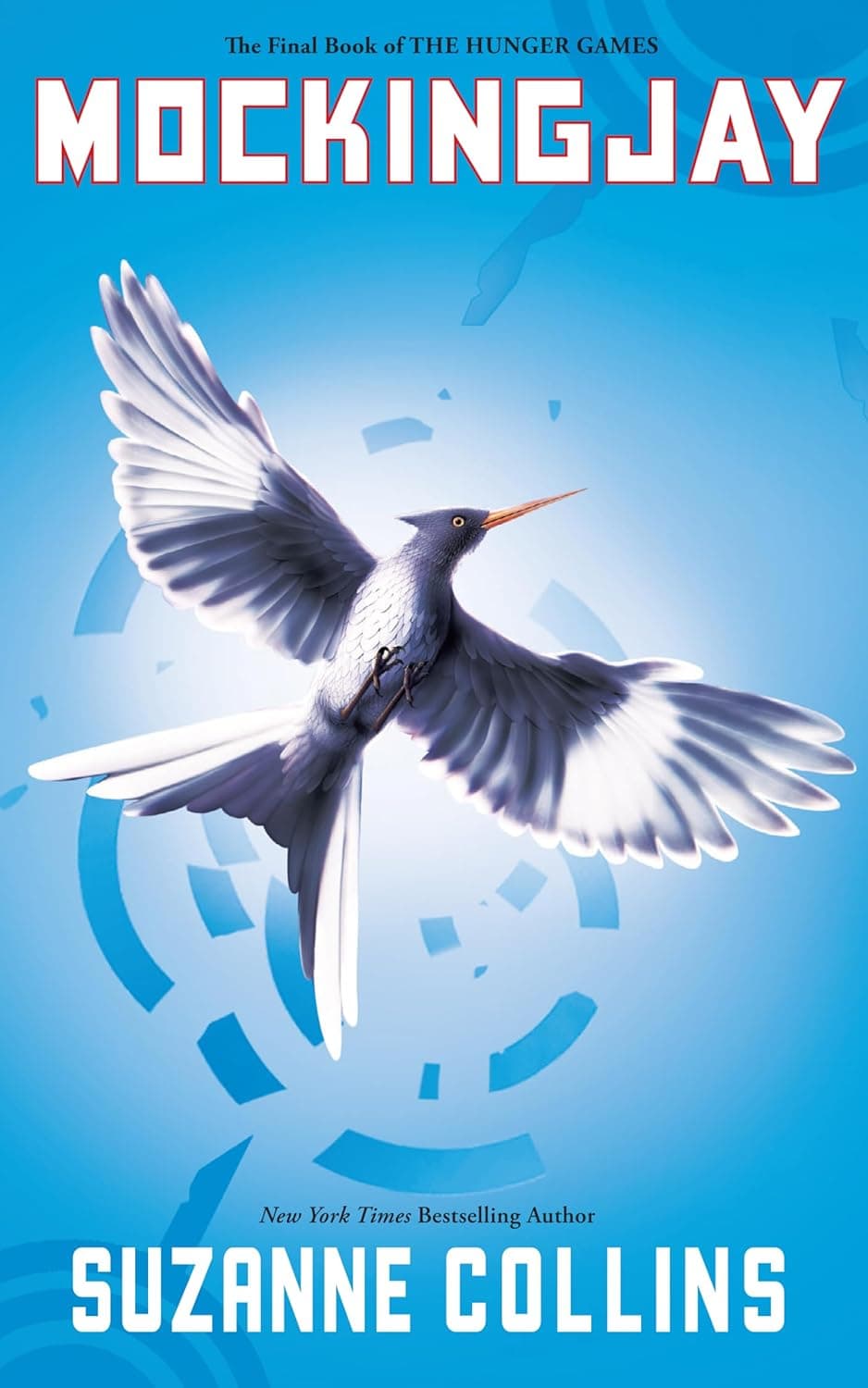
Review summary
This spoiler free review of Mockingjay by Suzanne Collins walks through why this classic dystopian novel that book 3 of the hunger games trilogy still hooks readers. Mockingjay trades arena combat for open war as Katniss becomes the face of a revolution built on propaganda, sacrifice, and resilience.
Full review
Mockingjay shifts The Hunger Games trilogy from arena survival to full scale war. Katniss finds herself in District 13, asked to become the face of a revolution that has already started using her image without her full consent. The arenas are gone, but the pressure is higher, and the lines between battlefield, propaganda set, and hospital ward blur quickly.
Instead of focusing only on missions, Suzanne Collins spends time on recovery, trauma, and the work of putting people back together. Propo shoots, strategy meetings, and rescue plans all matter, yet some of the most affecting chapters are quiet ones where characters admit what they have lost or what they are afraid of becoming. War is present in the explosions, but it is just as present in nightmares, arguments, and long silences.
Katniss remains compelling because she is brave, furious, stubborn, and deeply tired, often all in the same scene. Gale, Peeta, Boggs, Coin, and other key figures complicate her choices instead of offering simple answers. For another series that plays with the intersection of power, propaganda, and personal cost, you can compare Mockingjay with our thoughts on A Clash of Kings, where similar questions appear in a very different world.
Read today, Mockingjay feels less like a traditional finale and more like a story about what it means to survive after being turned into a symbol. It is interested in who gets to write the official version of events, what is left out, and how someone who has been used as a figurehead might try to reclaim even a small part of their own life.
Mockingjay Review Highlights
Replaces arena combat with guerrilla warfare, propaganda crews, and underground campaigns that show how revolutions are actually organised.
Balances daring missions with introspective chapters that linger on grief, recovery, and the long tail of trauma.
Offers a conclusion that stays true to the characters by acknowledging that victory and healing rarely look neat.
Readers Who Will Love Mockingjay
Fans of character focused war stories who want to see how a girl with a bow becomes, and then questions, a symbol of rebellion.
YA dystopian readers comfortable with darker themes who appreciate books that take the emotional cost of conflict seriously.
Further Exploration for Dystopian Fans
Revisit the first two books to trace how each of Katniss's decisions, large and small, pushes Panem toward this point.
Browse more dystopian and war focused stories in our archive for different takes on propaganda, resistance, and recovery.
Key ideas
- Revolutions depend on narrative control as much as military strategy.
- Healing from trauma requires time, community, and space for honesty.
- Symbols carry weight only when the person behind them retains some agency.
If you liked this, read next
FAQ
- What is Mockingjay about?
- Mockingjay by Suzanne Collins follows Katniss as she becomes the public face of a full scale rebellion against the Capitol, navigating propaganda, combat missions, and the emotional toll of war. The story focuses on what victory costs the people asked to embody hope.
- Who will enjoy Mockingjay?
- Readers who liked the first two Hunger Games books and want a finale that digs into consequence, grief, and rebuilding will likely appreciate Mockingjay. It suits teens and adults who prefer character driven endings over simple triumph.
- What themes stand out in Mockingjay?
- The book keeps returning to who controls the story, how trauma reshapes relationships, and what it means to fight for a cause without losing yourself. Questions about trust, leadership, and the cost of violence run through almost every chapter.
- Is there anything to know before starting Mockingjay?
- Mockingjay is the third book in The Hunger Games trilogy and should be read after The Hunger Games and Catching Fire. Expect heavier subject matter, a focus on recovery as well as action, and an ending that aims for honesty more than easy closure.
Reader-focused angles
This review intentionally answers longer questions readers often ask, such as mockingjay story recap and themes about war, trauma and propaganda, mockingjay age guidance, heavier content and who this finale is suited for, books like mockingjay for readers who enjoy intense young adult dystopias, and mockingjay characters, ending and meaning to talk about, so the guidance fits naturally into the analysis instead of living in a keyword list.
Each section of the review is written to speak directly to those searches, making it easier for book clubs, educators, and new readers to find the specific perspectives they need.
Reading guide
- Make a list of each propo shoot and note how the rebellion shapes Katniss's image for different audiences.
- Pay close attention to scenes between Katniss and Peeta to explore how memory, identity, and love are tested by war.
- Jot down moments where characters push back against orders, then talk about what those choices say about power and loyalty.
As an Amazon Associate, I earn from qualifying purchases.